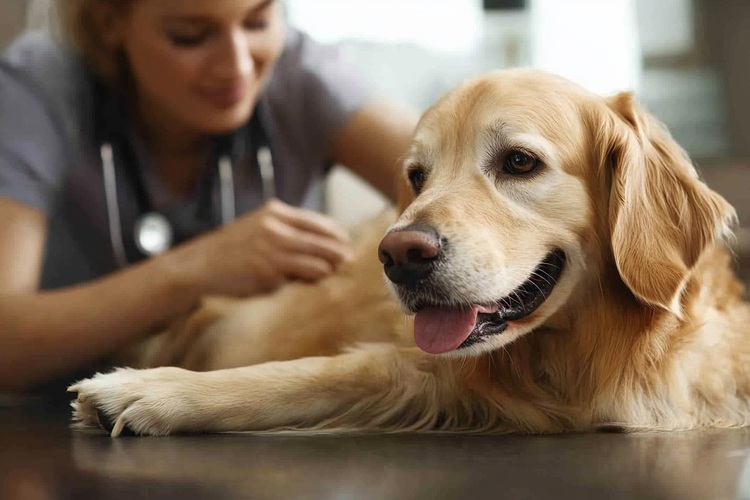Veterinarian Services: Care Options for Pets, Dogs, and Cats
Veterinarian services encompass a range of medical, surgical, and preventive care designed to keep pets healthy throughout their lives. From routine vaccinations and wellness exams to emergency surgery and dental care, veterinary clinics provide the skills and equipment necessary to diagnose and treat conditions affecting dogs, cats, and other companion animals. Understanding what these services cover helps pet owners make informed decisions about routine care, emergencies, and long-term health planning.

This article is for informational purposes only and should not be considered medical advice. Please consult a qualified healthcare professional for personalized guidance and treatment.
What does veterinary care include?
Veterinary care covers diagnostics, treatment, and prevention. Typical offerings include physical exams, vaccinations, parasite control, laboratory testing (blood work, urinalysis), imaging (X-rays, ultrasound), dentistry, spay/neuter surgery, and chronic disease management for conditions such as diabetes or kidney disease. Many clinics now provide behavior counseling and nutritional guidance as part of a holistic approach. Veterinary teams often include veterinarians, veterinary technicians, and support staff who work together to evaluate diet, lifestyle, and environment to recommend appropriate care plans.
How do pet preventive services help?
Preventive services are the foundation of long-term pet health. Regular wellness exams allow for early detection of issues before they become serious, and vaccinations reduce the risk of infectious diseases. Preventive care also includes parasite control (fleas, ticks, heartworm), dental cleanings, microchipping, and weight management. For many conditions, early intervention reduces treatment complexity and cost while improving outcomes. Preventive visits are also opportunities to discuss behavior, exercise, and nutrition tailored to a pet’s life stage—puppy/kitten, adult, or senior.
When should a dog see a veterinarian?
Dogs should have an initial veterinary exam when adopted or purchased, followed by a schedule of vaccinations and wellness checks recommended by the clinic. Puppies need more frequent visits for vaccinations and growth monitoring; adult dogs typically benefit from annual exams, though seniors or dogs with chronic conditions may need semi-annual visits. Immediate veterinary attention is advised for signs such as difficulty breathing, severe bleeding, sudden lethargy, vomiting or diarrhea that persists, seizures, or trauma. Routine visits also include parasite screening, dental checks, and joint or mobility assessments for aging dogs.
When should a cat see a veterinarian?
Cats often hide signs of illness, so regular veterinary exams are important even when they appear well. Kittens require a vaccination series and spay/neuter surgery as advised by a veterinarian. Adult cats usually benefit from annual wellness visits; senior cats or those with chronic disease may need more frequent monitoring. Watch for subtle changes—reduced appetite, weight loss, increased thirst, changes in litter box habits, or altered grooming—that can indicate underlying issues. Preventive care for cats includes vaccinations, parasite control, dental care, and environmental advice to support indoor or indoor/outdoor lifestyles.
What healthcare plans and emergency care exist?
Veterinary healthcare can be delivered in multiple settings: general practice clinics for routine and preventive care, specialty hospitals for advanced diagnostics and surgery, and emergency/critical care centers for after-hours crises. Many clinics offer wellness packages or wellness plans that bundle exams and routine services into scheduled care. Pet insurance can help offset costs for accidents and illnesses but varies widely in coverage and exclusions; review policy details before enrolling. In emergencies, seek clinics that provide 24/7 care or transfer agreements with nearby specialty centers to ensure access to advanced treatment when needed.
| Provider Name | Services Offered | Key Features/Benefits |
|---|---|---|
| Banfield Pet Hospital | Wellness exams, vaccinations, dental care, diagnostics, preventive plans | Large national network, in-store locations at some pet retailers, wellness plans available |
| VCA Animal Hospitals | General practice, emergency care, specialty medicine, diagnostics | Wide range of specialty services and 24/7 emergency hospitals in many regions |
| BluePearl Veterinary Partners | Specialty and emergency medicine, surgery, internal medicine, oncology | Focus on advanced diagnostics and specialty referral care, often co-located with emergency services |
| National Veterinary Associates (NVA) clinics | General practice and specialty services depending on location | Network of independent and partner clinics, offers diverse local service options |
| Local independent veterinary clinics | Routine and preventive care, often personalized services | Community-focused care, continuity with a consistent clinic team and individualized attention |
Conclusion
Veterinarian services provide a spectrum of care from routine preventive visits to specialized treatments and emergency interventions. Regular wellness checks, appropriate vaccinations, parasite prevention, and timely attention to behavior or physical changes form the backbone of responsible pet ownership for both dogs and cats. Knowing the types of services available and the kind of facility best suited to a pet’s needs helps owners plan for routine care and respond quickly in urgent situations.






